NATIVE Exclusive: Jail Time Records Is The Home of Cameroon’s Incarcerated Artists
A showcase of the strength of community and the redemptive power of music.
A showcase of the strength of community and the redemptive power of music.
In November 2022, Jail Time Records, a non-profit record label made up of rappers, singers, producers and filmmakers formerly and currently incarcerated in Cameroon’s Douala Central Prison, released its first compilation album ‘Jail Time, Vol. 1.’ The album is a collection of 24 tracks that revolves around Rap, Afrobeats, Afro-trap, Drill and Afro-house. Through an assemblage of languages spoken in Cameroon—French, English, Douala, Fulbè, Bamoun, Bassa and Sango—several artists chronicle life behind bars and explore themes of frustration, pain, love, guilt, hope, social and political criticism. The album is a showcase of the strength of community and the redemptive power of music.
“It’s always a matter of chemistry or alchemy how you compose an album, especially when you have hundreds of songs to choose from. It’s not always easy but it kind of made sense,” says Dione Roach, one of the co-founders of Jail Time Records. “The songs had different themes. They had different feelings [and] different emotions. It kind of created a bit of a story, a narrative around this universe of incarceration. So I think we were looking for that diversity. And that’s why there’s also the skits in the album, sounds from the prison, a [recording of a guy] speaking, interviews or even phone calls between one of the artists and his daughter.”
Variety lives on ‘Jail Time, Vol. 1.’ Songs like D.O.X.’s “Loubards,” Empereur’s “Sa Ngando,” Do Stylo’s “Sang Or Argent” and Kengol DJ’s “Ça Va Aller” are hard-hitting Rap songs with verve and power; songs like Makondo’s “Low” dwell on introspective topics; Jeje, who is the only woman and Nigerian on the tracklist, provides catchy melodies on “Show Me The Way,” and these melodies are replicated on D.O.X’s Vidou H-assisted “Offline,” Landy’s D.O.X. and Debit-featuring “Tuerie 1” and Vankings’ D.O.X.-assisted “Micky Mouse.”
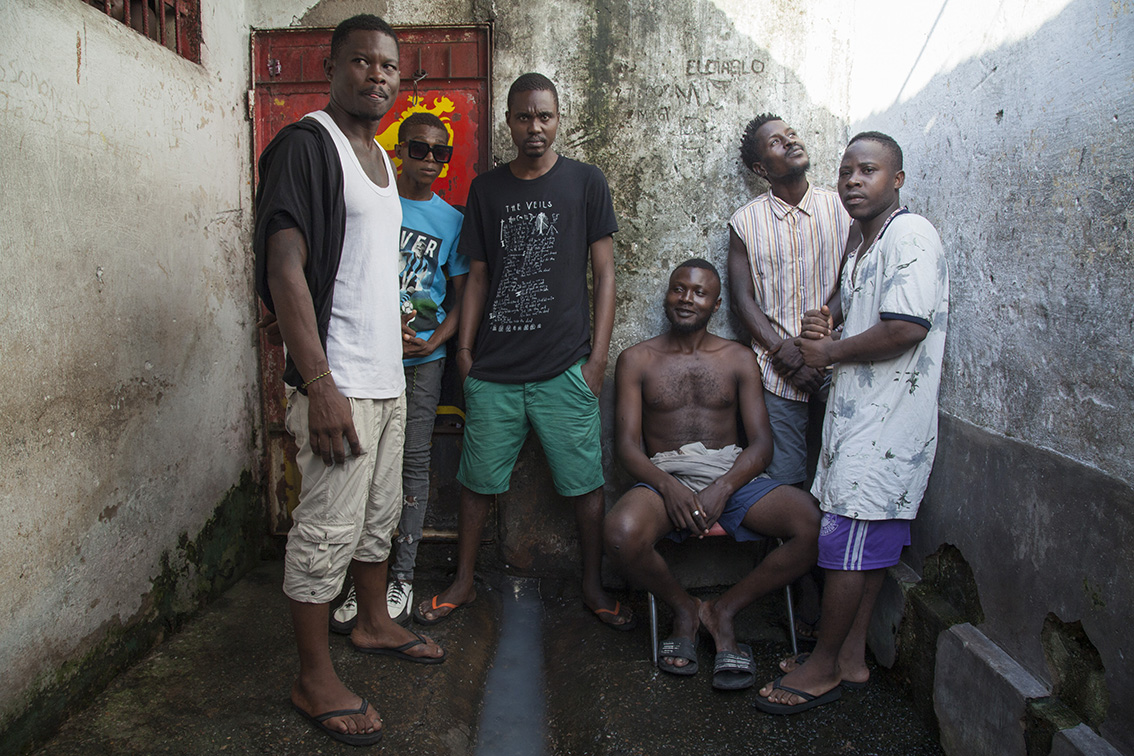
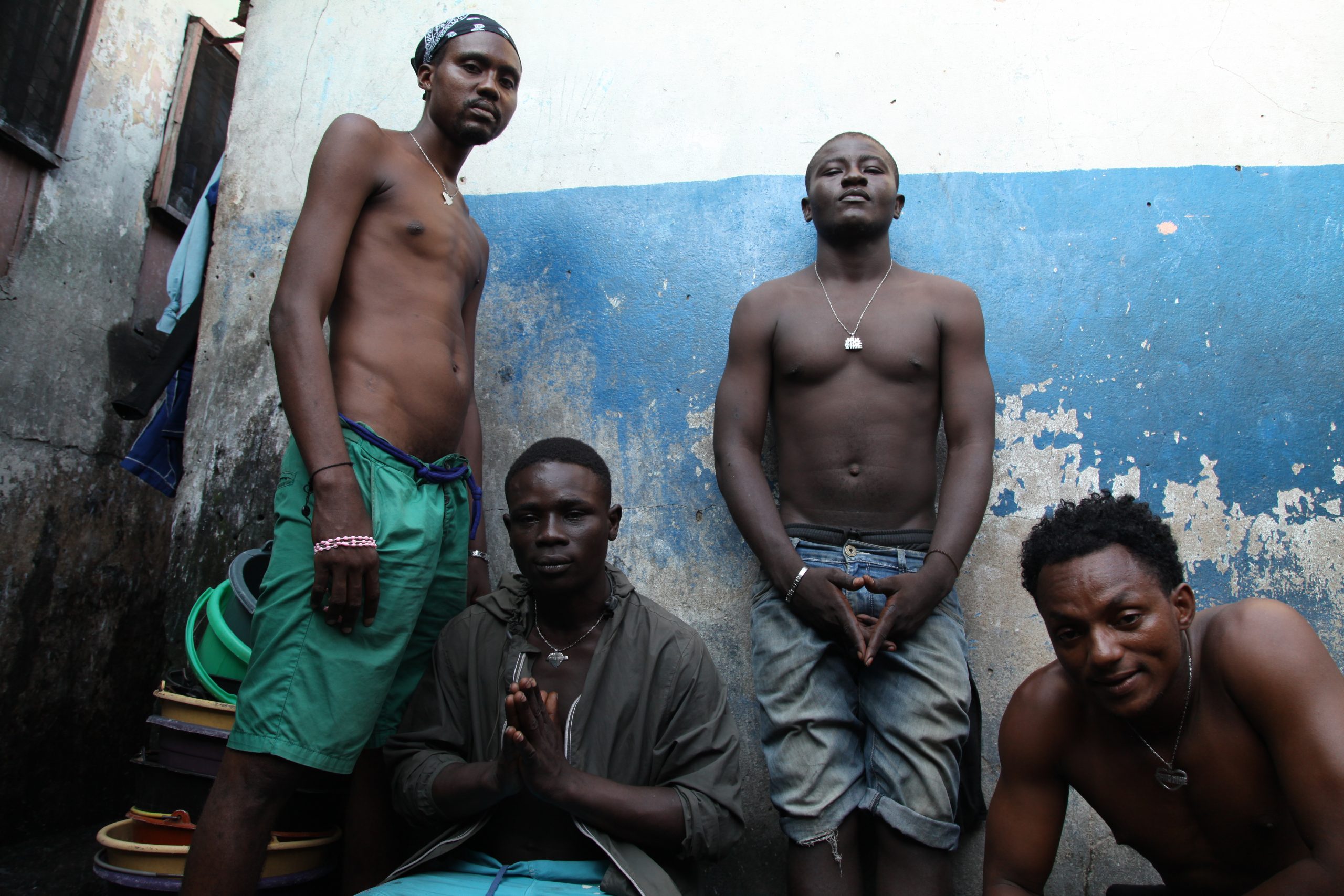
For most of the artists on ‘Jail Time, Vol. 1’, which is dedicated to the memory of Chimico, one of Jail Time Records’ artists who passed on in 2019, the project is a major milestone in their lives. “They are really excited and really proud because most of them had never had music released before,” Roach says. “And in general, it gives them a lot of optimism and it gives them even more desire to commit and go further with the music.”
Between 2017 and 2018, Dione Roach, who is a multidisciplinary artist working with photography, video and painting, was a volunteer with the Italian NGO Centro Orientamento Educativo (COE), at Douala Central Prison in Cameroon. It was her first time in Africa. During that time, while she gave painting workshops and organised dance and music events, she met a group of rappers—Stone Larabik, King Ice, Chimico, Do Stylo, Picsou—called La meute des penseurs, which translates as “the wolf pack of thinkers,” who would then invite Roach to their rehearsals. “They were rehearsing every day in the death sentence court of the prison. It’s a crazy space,” she says. “Sometimes they use it as a church. Other times they use it to watch soccer. Other times it’s a restaurant. There’s a lot of drug trafficking as well and stuff. That was my first contact with the musical part [of the prison].”

Roach, who was born in Italy and was surrounded by art and familial support all her life, became thrilled by the dedication and passion of the musicians who didn’t come from backgrounds that encouraged their artistic leanings. She approached COE for funding to build a recording studio inside the prison and both the NGO and prison officials obliged her. Afterwards, she met Steve Happi (aka Vidou H), a multi-instrumentalist, sound engineer, producer and singer who became Jail Time Records’ in-house producer and her co-founder.
In hindsight, Happi and Roach’s meeting seem divinely orchestrated. Throughout Roach’s volunteer activities in the prison, their paths never crossed. Happi spent most of his mornings and afternoons in his cell and used the nights to stretch his legs and mind. One midnight, a late pal who knew he was into music told him about a “young white lady” who frequented the prison and had kick-started plans to build a recording studio. The friend spoke to Roach about Happi and the two met and, while in conversation, discovered that they shared a lot in common. A couple of months later, as her time in Cameroon as a volunteer was coming to an end, Roach handed Happi the key to the studio and told him he was in charge of it.
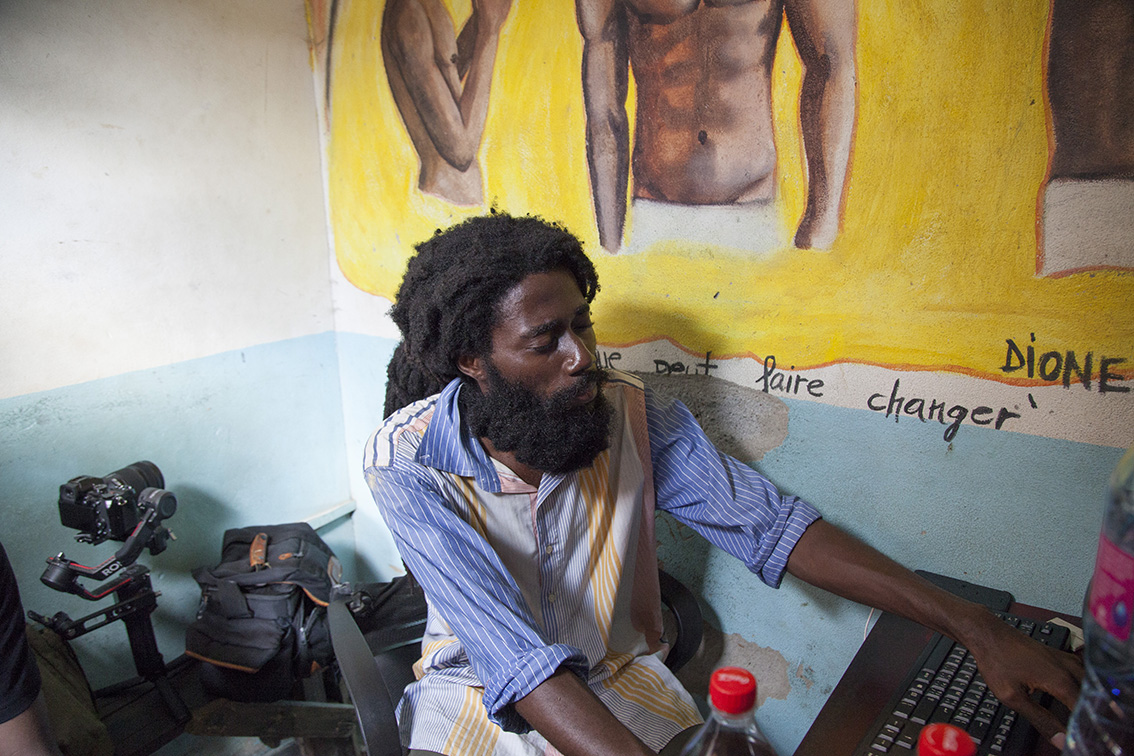
At Jail Time Records, Happi kept an open-door policy, allowing anyone who showed interest in music to stay and record. When Roach returned to Cameroon five months later, Happi had recorded over a hundred songs spanning Hip-Hop, R&B, Afropop and Gospel. She was impressed with the efforts of Happi and the other prisoners and decided to create a functional music label and release those songs to the public. After Happi left the prison in 2020, he handed control of the studio to Stone Larabik.
“It was really a new experience,” says Happi about his time in prison and making music. “It’s not even something you take [a] decision like, ‘Yeah, it’s about to be a new experience.’ No. You are just living the experience because you are behind bars. The conditions are really different. The spirit is really different. Your soul is acting different. Prison is another world. Your creative processes are really different. The inspiration is even different. You are in the middle of four walls and that’s when music [becomes] an instrument of resistance, an instrument of sharing, an instrument about knowing people.”
Happi’s experience in prison also taught him about the motivations and desires of the inmates whose songs he recorded. Those songs offered him a peek into the mental and emotional psyche of the artists who sang or rapped about personal and familial travails, often basing their songs on their memories of their fathers, mothers, children or friends. “It was more about [the] real lessons of life. They even educate you through the stories. So for me, it was a huge experience about resistance,” he says.
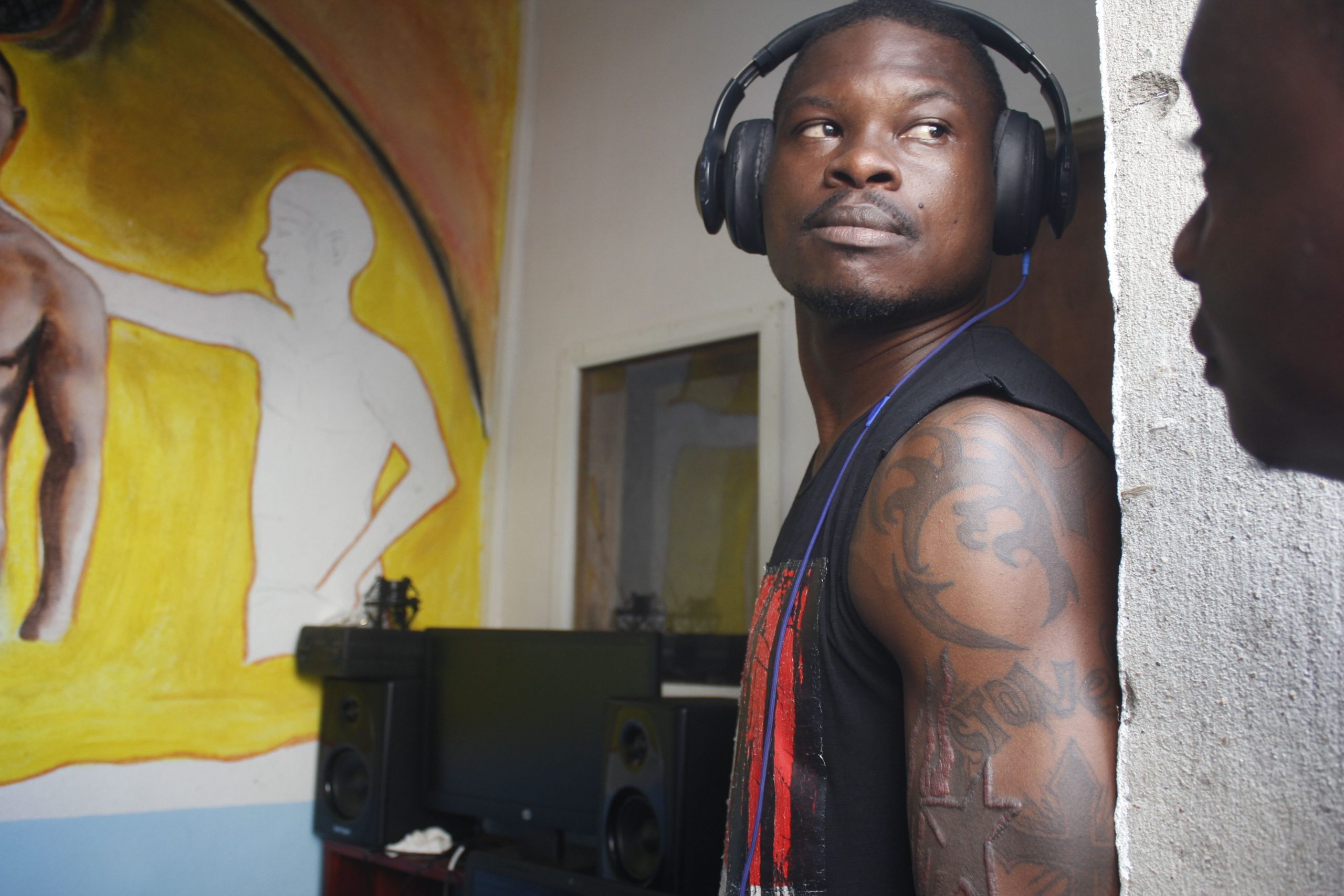
The first music video shot in Douala Central Prison was for La meute des penseurs’ “MERCI” in 2019. It was directed, filmed and edited by Roach. Since then, she has handled the direction of the music videos for tracks from Jail Time Records’ artists. These music videos—Stone Larabik’s “Fils du terre terre (Freestyle),” Landy’s “Tuerie 1,” Empereur’s “Sa Ngando,” Abdel’s “Soungoula,” Jeje’s “Show Me The Way” and D.O.X.’s “Offline”—feature grittiness and unsophisticated emotions that highlight the harsh circumstances surrounding the artists. In some of the videos, Roach adds body painting as a costume choice to give the visuals another dimension.
“The prison is always the same space and it’s very limited. So we have to find stuff to make it different,” Roach says. “You have to find just different visual colours or you have to be quite creative to make it a bit different. Otherwise, it will always be the same because it’s the same place. So yeah, I think out of that limitation, it kind of made me want to explore an art direction that took on different elements.”
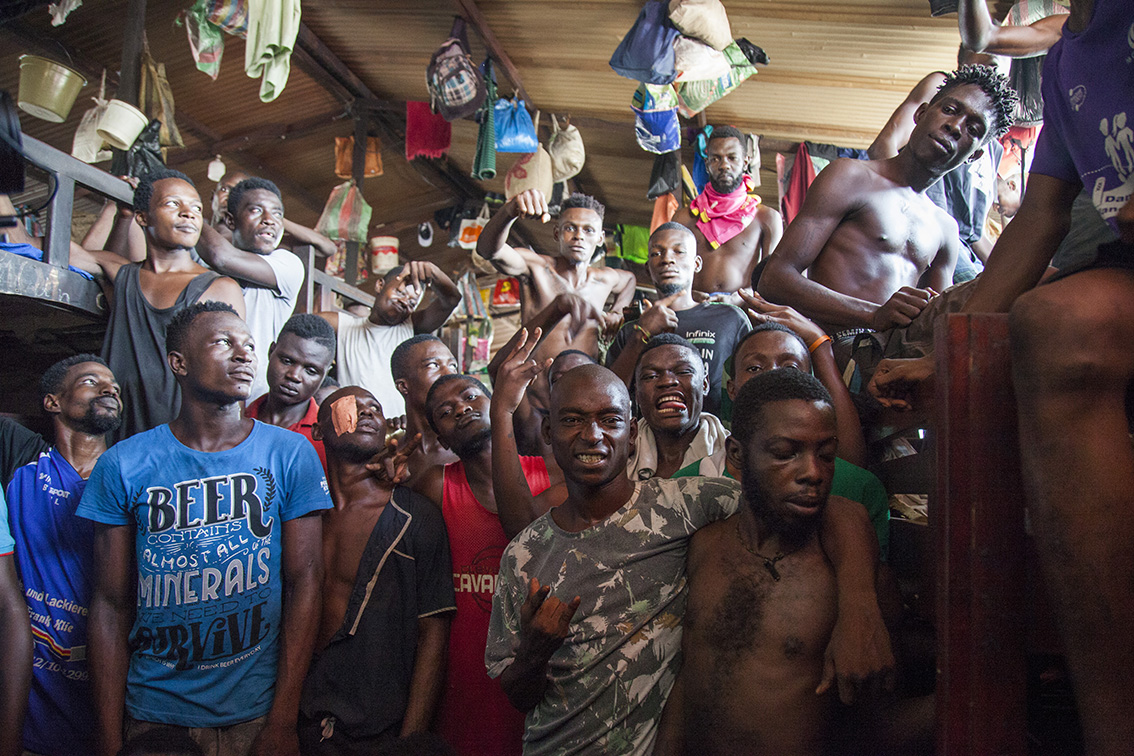
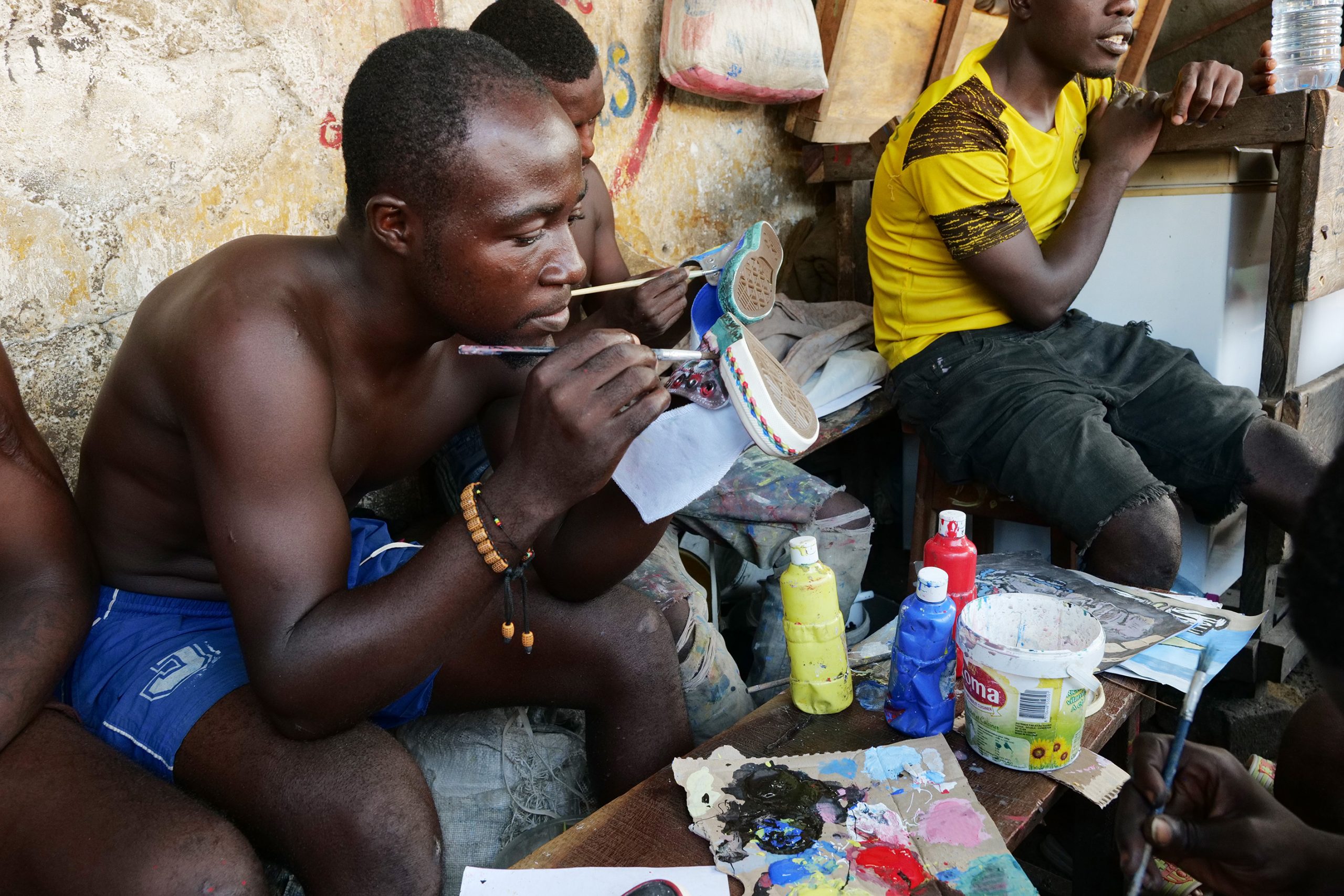
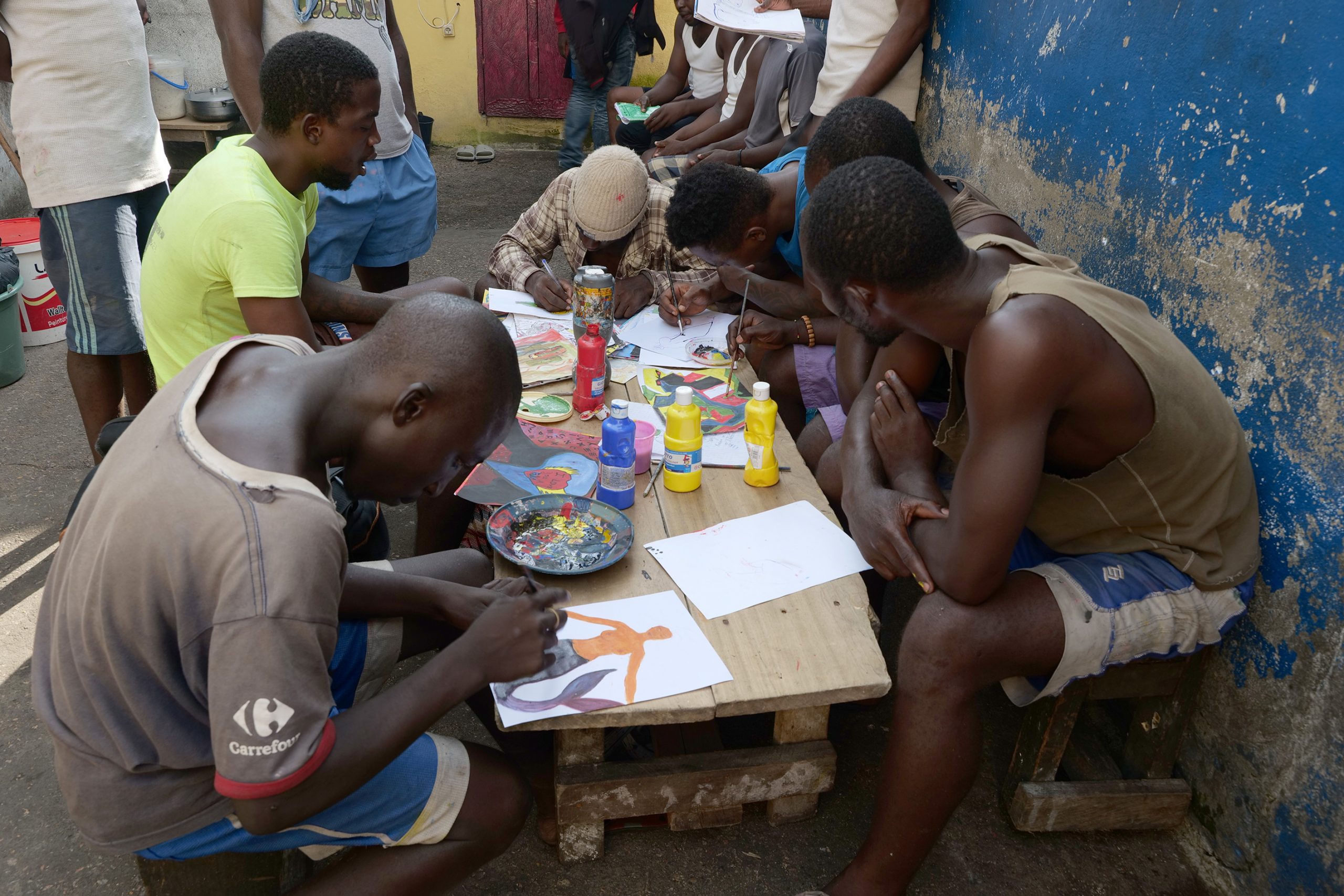
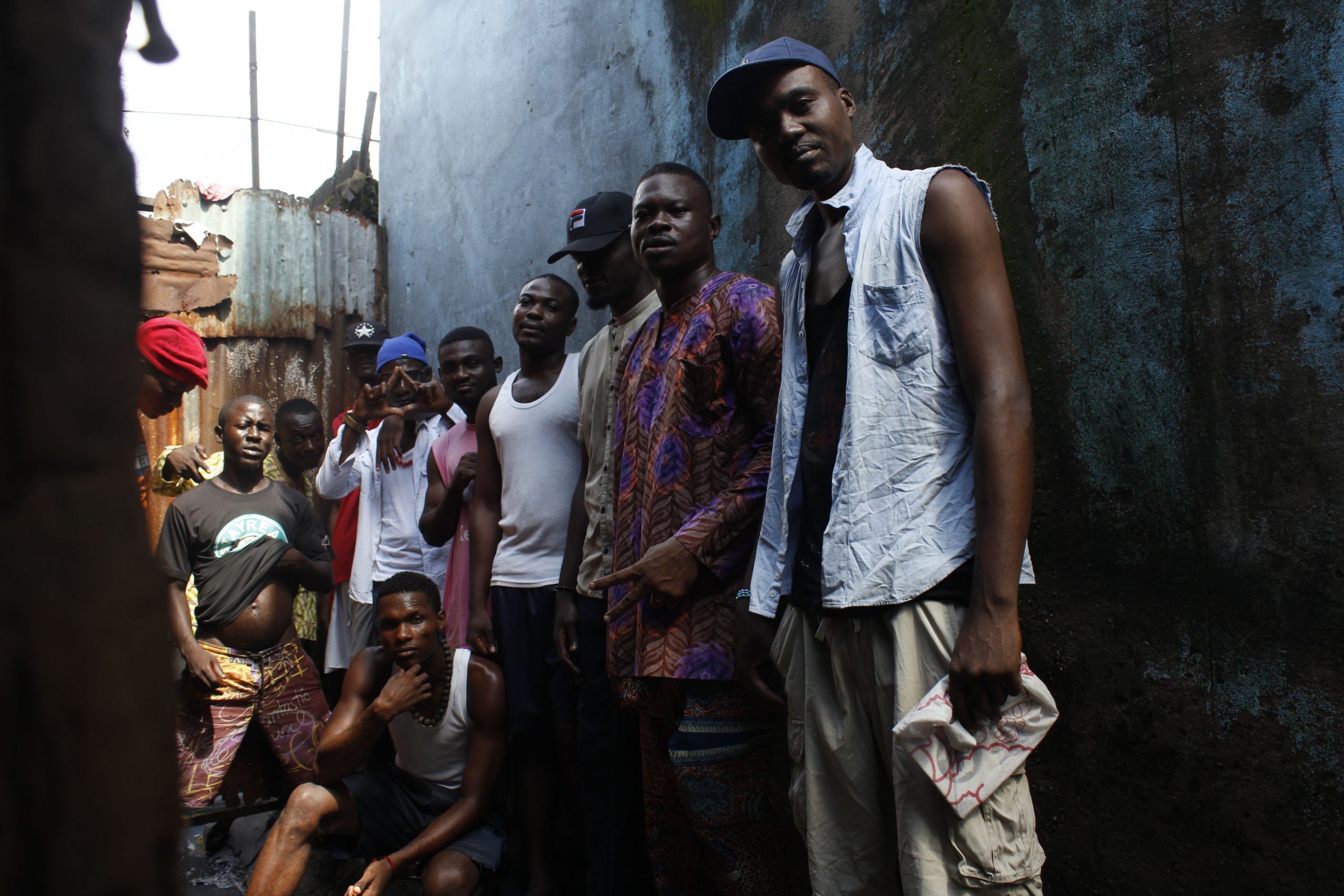
In December 2021, Jail Time Records built a new recording studio outside the prison. The reason for the new studio was to ensure an easy transition for the ex-convicted artists into free citizens of the community. “For a lot of guys, when they come out of prison, it becomes quite difficult if we have to bring them back to prison to record,” Roach says. “Like already it’s not that easy for them if we’re not there to have access [to studios] and then a lot of them don’t really want to go back to prison because there’s a lot of bad memories.
“That’s why it was important to keep the guys busy, to keep them working, to keep them focused once they leave because actually, the most sensitive moment is when they leave prison because that’s when it’s like, ‘Okay, what happens now? Are you really going to change your life or are you going to go back to the life you were living before?’ And you know a lot of them come from quite disadvantaged backgrounds and maybe the families won’t take them in or they need money. So it’s important to be there at that stage and keep them motivated.”
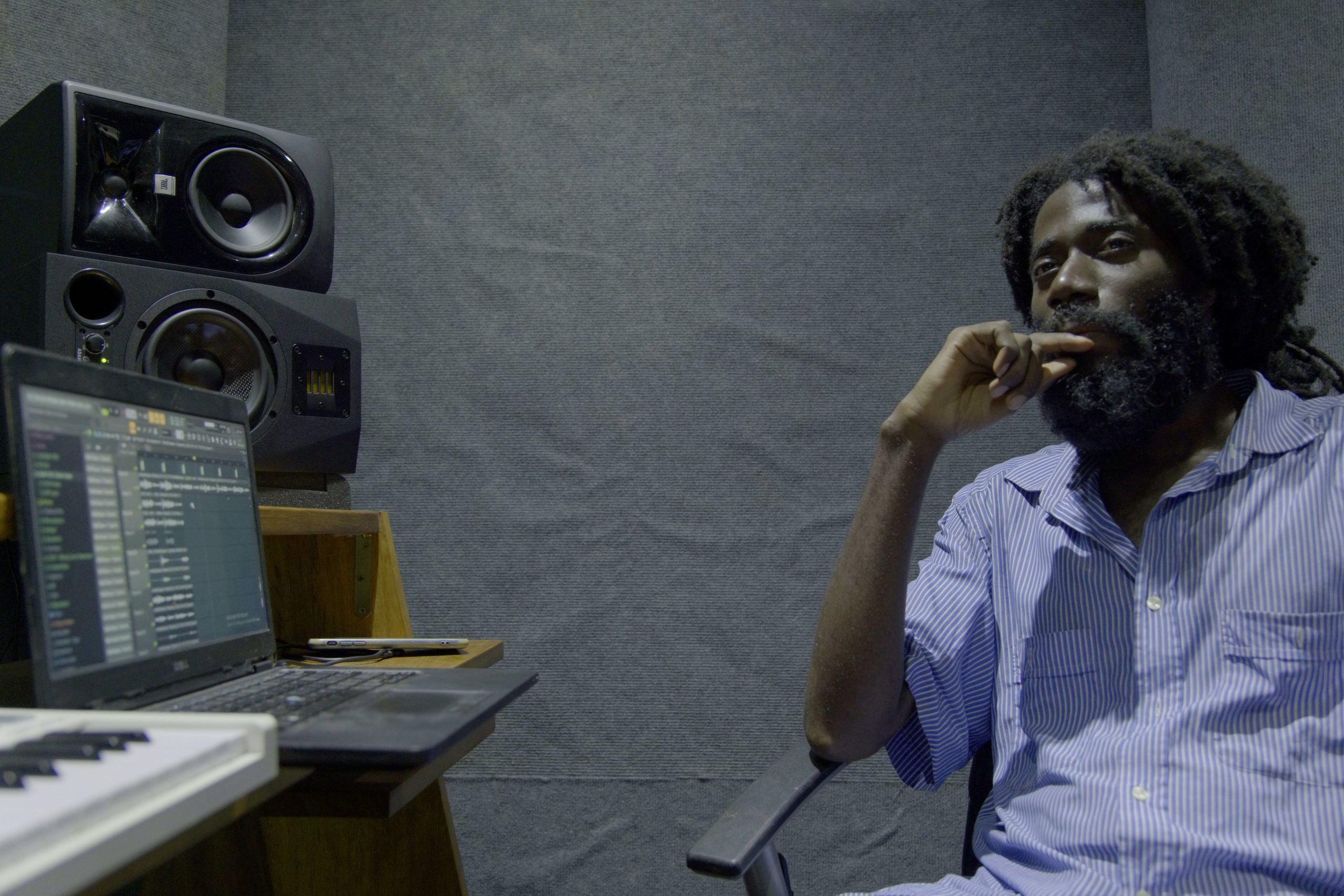
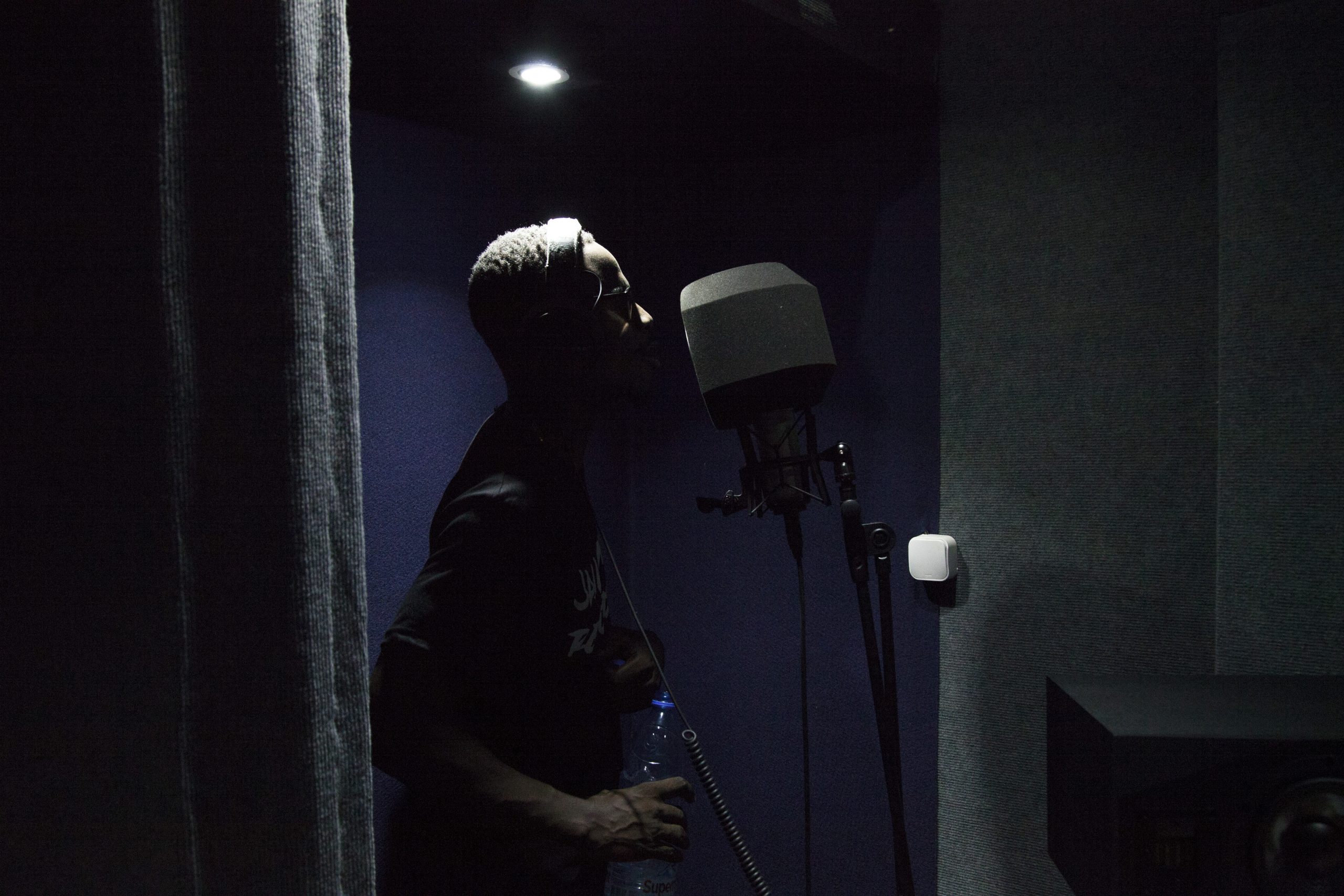
Jail Time Records plans to help some of the artists to launch solo careers. One of those artists is Jeje who has always been committed to music since she was 18 and who Roach says is “incredibly talented.” Aside from music, the record label, through Roach and Happi’s savings, has found accommodation for some of their artists and given out capital to others to set up businesses. Roach reveals that it is just recently that the label got funding from the Moleskine Foundation and the Supporting Act Foundation.
Happi, who produced and engineered all the tracks on ‘Jail Time, Vol. 1,’ found the process challenging but fulfilling. “I don’t like to put boundaries [on myself] because I don’t have the audacity to judge people. It was really a matter of spirituality. It was a matter of connection [and] energy,” he says. He also reveals that Roach was pivotal to the process. “She’s the kind of person that’s going to tell you, ‘Mix this and that.’ She was the one who told me, ‘Yeah, it’s good to make traditional music, but I would like you to put maybe a traditional singer on a trap beat. She’s a producer too. I told her, ‘You don’t know this, but you are a producer. It’s not only about making beats.’”
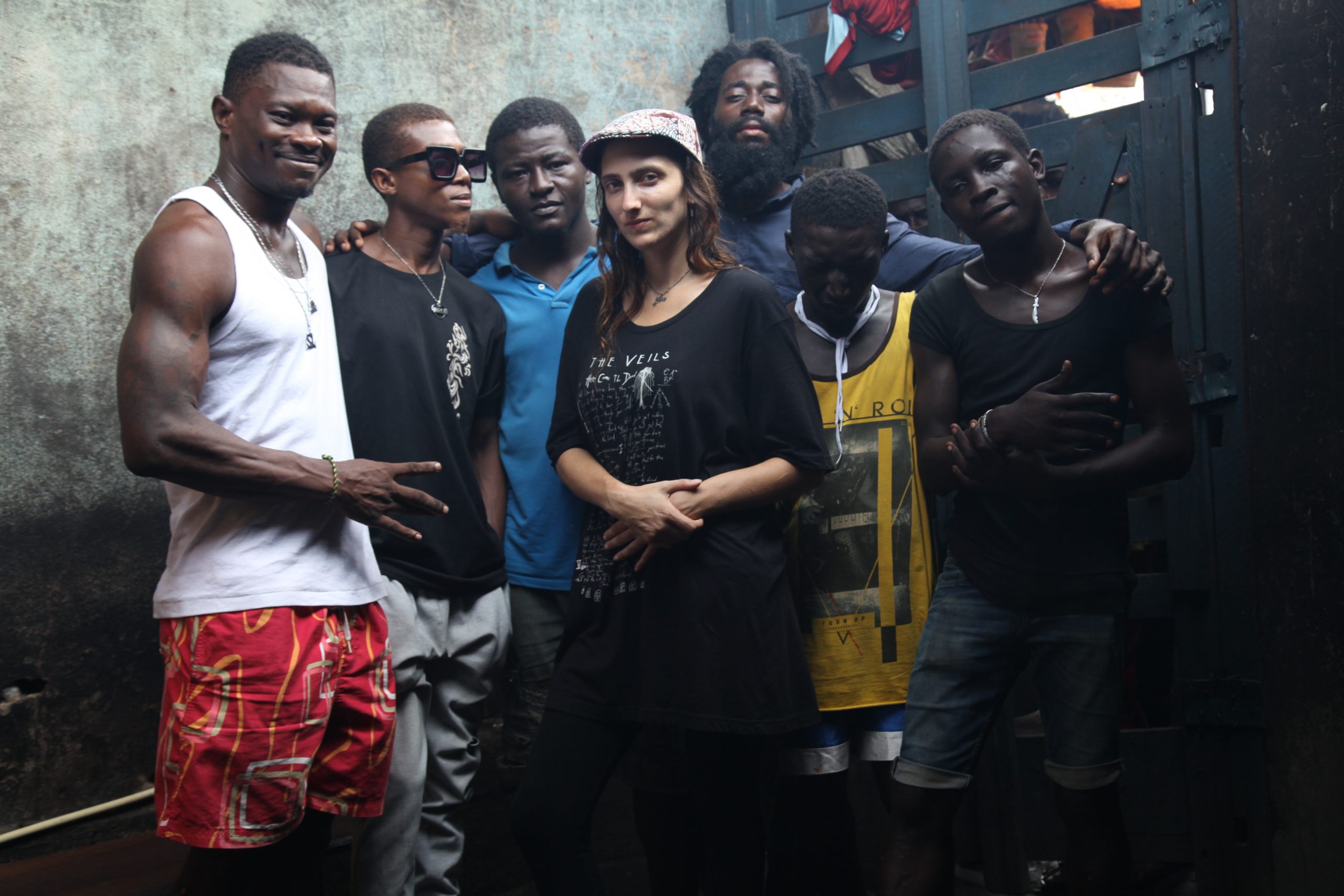
In terms of the promotion of the album, Jail Time Records offers some of the artists who are outside the prison the opportunity to perform at concerts and find new audiences. The record label also plans to expand its reach to other prisons in Africa. “[In] 2023, we are going to go to MACO (Maison d’Arrêt et de Correction de Ouagadougou) prison in Burkina Faso. [We were] there for like a workshop last year (2021) and we’re going to build a studio there as well,” Roach says. “But as you can imagine, Nigeria is a dream in terms of musical potential. And so Lagos [has] always been on our top list of places we would love to go and bring the project.”
Yet, those aren’t the only plans Roach and Happi, who describes his experiences in prison—meeting Roach, working with fellow incarcerated artists and making ‘Jail Time, Vol. 1’—as “a blessing,” have in store for the label and themselves. In the future, Happi and Dionne plan for Jail Time Records to really become a kind of movement and an established platform for the voices of prisoners and for great music as well. Roach says, “and to have as big as an impact it can have on the life of the people involved and of their families and the community and society as a whole.
Now, Jail Time Records has their sights set on making a documentary. “We’ve been working on a documentary of the life of the artists inside prison. Hopefully, we will get done this year. And for us as artists, I think I can speak for both of us, there’s a lot of creativity [around us that is stimulating]. All these people we work with have such strong stories and the cultures they come [from]—because they all come from different ethnic groups and different backgrounds—there’s so much cultural richness [and] it’s a very fertile environment for creativity, for imagination and work. So I think it’s just to bring as much of that out artistically as we can.”
Stream ‘Jail Time, Vol. 1′ below.
Featured image credits/

